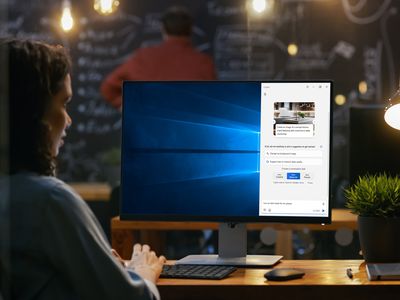
The Essential Guide: When Are Bluetooth Adapters Necessary for Your Lightning Headphones?

The Essential Guide: When Are Bluetooth Adapters Necessary for Your Lightning Headphones?
Key Takeaways
- Some cheap Lightning headphones draw power from the port to activate Bluetooth, bypassing MFi requirements.
- These headphones are cost-effective due to no need for batteries, but may lack explicit labeling as Bluetooth.
- Despite potential audio quality differences, this workaround offers a budget-friendly alternative to certified accessories.
If you’re traveling abroad and buy a pair of cheap wired Lightning headphones for your iPhone, you may run into a strange situation where you need to turn on Bluetooth for these headphones to work. What gives? The answer is both logical and unexpected.
This all started when an engineer named Josh Whiton, who actually works with Bluetooth, encountered these strange headphones on holiday related in a (now-deleted) post on X. The staff in the store kept insisting he had to turn on the phone’s Bluetooth to get the headphones to work, which was a problem because he wanted to use them on a plane! To understand why this came to pass, we have to look at how Lighting accessories work.
Apple MFi Requirements for Accessories
If you want to make an accessory that works with LIghting, Apple’s proprietary connection standard, you need to pay Apple a fee and cut it in on your sales of that accessory. Then you need the right hardware component in your accessory to pass verification. This is why you can only use accessories that are “MFi” (that’s Made For iOS, iPhone, etc.) with your Lightning devices. If you don’t, then you’ll get an error message saying that the connected cable or accessory isn’t certified.
Since MFi raises the barrier to entry for headphone makers, it makes sense that some producers of inexpensive accessories would look for ways to get around it, and they do come up with some clever workarounds!
Lightning Can Provide Power Without Data
Although you can’t establish a data connection without approved hardware, it seems you can draw power from a Lightning port even if you don’t have a certified accessory. Enough power to drive a set of Bluetooth buds or headphones, which really don’t need much current at all to work. Otherwise, you wouldn’t get a whole day of playback from the tiny batteries inside typical wireless buds, after all.
Bridging the Air Gap With Bluetooth
So that’s what these “wired” headphones have done. They draw power from the Lightning port on your phone, which then powers Bluetooth headphones. From this point you pair the headphones in exactly the same way you’d do it for any battery-powered set. This neatly works around the licensing requirement of the Lightning port, while cutting the cost of the headphones significantly, since there’s no battery system, and you don’t need to have true wireless headphones either. Only one Bluetooth receiver is required.
These Dongles Have Pros and Cons
The biggest problem with these headphones is that, as in the case of Mr. Whiton, there’s no real indication that what you’re buying isn’t actually a wired set of headphones. That’s a problem when the entire point of the purchase was to use them when you can’t have Bluetooth on.
Apart from this somewhat obvious caveat, there’s nothing inherently wrong with using this workaround. In theory, you’re not getting the same audio quality as you would through a true wired set, but if you’re buying a cheap uncertified pair of headphones, sound quality wasn’t at the top of your list of expectations anyway.
Another issue that occurs to me is that these headphones would not be as cheap as a pair if true wired headphones, but perhaps they work out cheaper than the cost of getting MFi certification and the required hardware in place.
You’d think that you could work around this by getting a Lightning to headphone adapter, and just using a normal pair of headphones, but the exact same trick could be pulled with an adapter. Where the adapter had a Bluetooth receiver inside, and just converts that back into a wired signal!
The bottom line here is that you get what you pay for, and things are not always as they seem. So if you pick up some cheap buds on holiday and they have this weird requirement, at least now you know why.
Also read:
- [Updated] 2024 Approved Become a Pro in Calculating YouTube Ratio Measures
- [Updated] Insta Live with OBS Broadcast
- CarryMinati's Income Blueprint Journey Through 2023 for 2024
- Demystifying Streaming Hardware: A Comprehensive Guide on Devices for Media Consumption
- Eager to Use AI Conversations Locally? Check Out These Superb Open Source Options!
- Inside Track to Superior SRT Upgrades for 2024
- Master Your Creative Vision with Digital Cropting Skills
- Mastering Data Recovery with Tenorshare UltData - A Complete Insider's Manual
- Simple Steps: How to Swiftly Retrieve Lost iPhone Notepad Entries Instantly
- Step-by-Step Guide: Restoring Accidentally Erased Data From Your iPad Using a Mac
- Step-by-Step Instructions on Recovering Your iPhone Using iCloud/iTunes Restoration Methods
- Step-by-Step Tutorial: Restoring Deleted Phone Calls on iPhones and Android Devices
- Successful Fixes For When HandBrake Halts During Encoding Process
- Troubleshooting Guide: Fixing Non-Responsive Battle.net Launcher on Windows
- Ultimate Techniques: Restoring Erased Phone Conversation Records on iOS and Android Effortlessly
- Title: The Essential Guide: When Are Bluetooth Adapters Necessary for Your Lightning Headphones?
- Author: Daniel
- Created at : 2024-10-05 16:57:24
- Updated at : 2024-10-06 18:37:34
- Link: https://os-tips.techidaily.com/the-essential-guide-when-are-bluetooth-adapters-necessary-for-your-lightning-headphones/
- License: This work is licensed under CC BY-NC-SA 4.0.